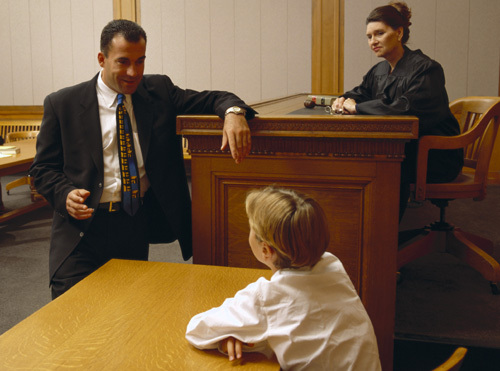- Milton Keynes 01908 660966
- Northampton 01604 828282
 Although it was approved thirty years ago in 1989, it took a further two years for the Children Act to become law and it was on the 14th of October 1991 that it finally came into force. Today technology is moving at light-speed and the Act may seem like ‘old hat’ to some people, however it is important to note that at the time it was revolutionary within the justice system. This was the first time that it became law to put children first and to deal with all eventualities in order to protect children, both in relation to children where parents had split or were in conflict and vulnerable children entering into the care system to be looked after by the Local Authority.
Although it was approved thirty years ago in 1989, it took a further two years for the Children Act to become law and it was on the 14th of October 1991 that it finally came into force. Today technology is moving at light-speed and the Act may seem like ‘old hat’ to some people, however it is important to note that at the time it was revolutionary within the justice system. This was the first time that it became law to put children first and to deal with all eventualities in order to protect children, both in relation to children where parents had split or were in conflict and vulnerable children entering into the care system to be looked after by the Local Authority.
Barbro Zeineh, Resolution Member and Family lawyer with a vast array of experience in dealing with the above says “The Children Act and its formula is still very fresh today and the ethos remains that if there is a conflict, which can be resolved without the intervention of the Court that this is always the best option and that any dispute should be looked at from the child’s perspective rather than that of the parents.”
If you are currently experiencing a relationship breakdown and would like advice on separation and divorce, finances or children matters, please contact a member of our Family team on family@franklins-sols.co.uk or 01604 828282 / 01908 660966. We offer consultations of 30 minutes at a cost of £150 plus VAT and would be happy to advise you.
 Much has been written in the press of late in relation to ‘Time to end the blame game’ in regards to Divorce.
Much has been written in the press of late in relation to ‘Time to end the blame game’ in regards to Divorce.
The current law governing Divorce came into force some forty-six years ago and, due to the passage of time is now outdated and therefore needs to be brought up to speed, sooner rather than later.
One burning question is whether the new Divorce Law Reforms, which will take time before they are fully operational, will lead to a spike in marriages ending.
The practicalities of obtaining a Divorce under the current law is, in general, pretty straightforward and simply a vehicle to get from A to B. The drawback is that in the absence of Two Years’ Separation by Consent, Desertion (also for a two year period) and/ or Five Years’ Separation that does not require consent, the most used grounds for Divorce are Adultery and/ or Unreasonable Behaviour, with the latter being the most commonly used in a Divorce Petition.
A Divorce Petition issued on either Adultery or Unreasonable Behaviour means that the Petitioner can claim the Divorce costs, i.e. for work relating to the Divorce only and the Court issue fee of £550. Therefore, compared to some years ago, the current Court process for a Divorce is fairly simple, but the fact that the Petitioner has to prove grounds for Divorce can complicate matters, and there is also the ‘blame’ factor. It is therefore about time that the UK Divorce legislation is updated and the blame element is scrapped.
Will the simplified Divorce process make any difference to marrying couples?
Barbro Zeineh CILEx who has practiced Family law for over thirty years says:
“I don’t believe that this new process will make any difference to young marrying couples, the majority of who decide to marry in order to share their lives with their partner. Life doesn’t always turn out as expected and couples can grow apart for many different reasons, but I don’t think anyone would decide on marriage on impulse just because they now know that it would be easier to Divorce, should they need to. Personally, I doubt very much that the Divorce Law Reforms will mean that more couples are marrying, because now it’s easier to Divorce. With all the cost of a wedding and the stress leading up to the big day, you have to believe in what you are doing and why. Why would any couple go through all of that on a whim.”
For further information on any aspect of Family Law please contact Barbro Zeineh on 01908 660966 or email barbro.zeineh@franklins-sols.co.uk.
 Following a consultation from the government, the Justice Secretary David Gauke announced on 9 April 2019 that divorce laws will be changed in an effort to “end the blame game”. The changes are due “as soon as parliamentary time allows”.
Following a consultation from the government, the Justice Secretary David Gauke announced on 9 April 2019 that divorce laws will be changed in an effort to “end the blame game”. The changes are due “as soon as parliamentary time allows”.
What is the current law?
In England and Wales, there is one ground for divorce – the irretrievable breakdown of the marriage. Currently, couples wishing to start divorce proceedings and satisfy the Court that their marriage has irretrievably broken down must prove one of five facts: adultery, desertion, “unreasonable behaviour”, two years’ separation (with bilateral consent) or 5 years’ separation if the divorce is contested.
Consequently, the majority of couples have to rely on the fault of one party to obtain a divorce.
Why is this a problem?
The announcement follows the highly publicised case of Tini Owens, who saw her application for a divorce denied by the Supreme Court in August 2018. It often comes as a surprise to people that being in a “loveless and desperately unhappy” marriage does not entitle one to a divorce in England and Wales. Indeed, many are even more shocked to find out that a Court has the power to prevent a divorce at all.
As family lawyers, we see the negative impact that the current divorce law can have on couples and on their children every day. The requirement to apportion blame often leads to unnecessary conflict and hostility. This makes it more difficult to achieve our goal of dealing with the breakdown of the marriage amicably and preserving ongoing parenting relationships.
How will the law change?
The new proposals will require a six month reflection period upon making the application. Couples will simply need to state that the marriage has broken down irretrievably, and they will have the option of making a joint application. Furthermore, there will be no scope for a spouse to refuse divorce, protecting spouses from finding themselves stuck in Tini Owens’ position.
What are the benefits of the proposals?
This is the first time that divorce laws will be changed since The Matrimonial Causes Act 1973. “No fault” divorces are expected to be warmly received by both the public and the family law community, who have long campaigned for these changes.
It is thought that the changes will eliminate unnecessary conflict and lead to a more conciliatory approach by both parties, which will undoubtedly benefit divorcing couples and their children. In short, the changes should prove a step towards making divorce law fit for purpose in the modern age.
What are the limitations to the proposals?
Whilst the introduction of a “no fault” system is a broadly positive development, these changes are not expected to automatically make the divorce process easier, quicker and less expensive. It is important to remember that arrangements involving children or financial issues arising from the divorce are often the most costly and complicated aspects. As family lawyers, this is what we spend most of our time dealing with, and the planned reforms do not affect these matters.
It is of course hoped that by removing the potential for arguments about the divorce itself, such issues will be resolvable more swiftly and with less hostility. However, further investment in the Courts is required to further improve the divorce process, in order to reduce delays and provide a less stressful experience for divorcing couples.
How soon will the reform be implemented?
It can (and often does) take months for new legislation to be brought into force, whilst parliament agrees on the wording to be used. With the government’s commitment still stretching no further than promising to bring “no fault” divorce into law “as soon as parliamentary time allows”, there is no telling how long this will take. Family lawyers will certainly be keeping an eye on the progress of the legislation over the coming months.
At Franklins we fully support Resolution’s ongoing campaign for a no fault divorce, and welcome the Government’s current proposals. We sincerely hope that the proposals become a reality sooner rather than later, and open the door to other positive developments too. In the meantime, if you are currently experiencing a relationship breakdown and would like advice on divorce, finances or children matters, please contact a member of our Family team on family@franklins-sols.co.uk or 01604 828282 / 01908 660966. We offer consultations of 30 minutes at a cost of £150 plus VAT and would be happy to advise you.
It is very important for people to ensure that their pension death benefits are left to the correct person when they die. Many people are overlooking to change the “expression of wishes” paperwork after they separate from a partner and many people, on their death, are leaving their pension death benefits to an estranged partner.
 Some people overlook to update their pension details so they unintentionally leave their pension death benefits to an ex. This can be the case even after a divorce so it is extremely important that people check their pension plan is up to date. There may be pension sharing provision on divorce so those going through a separation should consider seeking legal advice as soon as possible following a breakdown in their relationship.
Some people overlook to update their pension details so they unintentionally leave their pension death benefits to an ex. This can be the case even after a divorce so it is extremely important that people check their pension plan is up to date. There may be pension sharing provision on divorce so those going through a separation should consider seeking legal advice as soon as possible following a breakdown in their relationship.
For more information and guidance on issues relating to a relationship breakdown or separation please contact our expert Family Law team on 01908 660966 or 01604 828282 or by email family@franklins-sols.co.uk
A billionaire property developer has tried to protect his £1.1bn fortune from a claim by his estranged wife by claiming that they were never married. He has claimed that his marriage was based on a fake certificate which they obtained in order that their adopted child could get a passport.
 The wife claimed that a Muslim ceremony of marriage had taken place in Malawi in 2002 but the husband has claimed that no ceremony ever took place and a “certificate of convenience” was required to get a UK Passport for a child they had informally adopted.
The wife claimed that a Muslim ceremony of marriage had taken place in Malawi in 2002 but the husband has claimed that no ceremony ever took place and a “certificate of convenience” was required to get a UK Passport for a child they had informally adopted.
The QC representing the wife in the proceedings claimed that the wife is entitled to and does rely on the presumption of marriage. They presented as a married couple from 2002 until they separated in 2016. The divorce proceedings were concluded at the end of 2016 and at no point during the divorce proceedings did the husband claim that they were not married.
The husband is CEO and founder of a property group which owns large portions of the West End in London. However, the husband has claimed that he has “no capital” and was a “Man of straw”.
The case continues…
For an initial consultation or guidance on taking the next step in your separation or divorce please contact our family team to discuss your options on 01908 660966 or 01604 828282 for a confidential conversation on how we can help.
Staggering statistics show that last year more than 100,000 children were involved in wrangles between their parents in relation to which parent the children should have as his or her main home, level of contact, should one parent be given permission to remove the children from England and Wales and other specific applications in relation to a child’s care. From my experience as a Family Lawyer for over thirty years, even where there are no disputes between the parents this has a detrimental effect on the child, let alone where the parents are “fighting” over what he or she thinks is right for that child.
 Of late, and not for the first time, the point has been raised whether children should be heard in family court cases. Where there is an application before the Court where there are welfare concerns, the Court will order a report by CAFCASS (Court and Family Advisory Support Service). The author of the report will look at various aspects including the wishes and feelings of the child with the ultimate aim to protect the child and promote the relationship with both parents. A child of four year of age for instance expressing a wish not to see one parent will have far less impact than an older child expressing the same wish which would warrant further exploration as to why the child has reached that decision and whether the child is of an age to understand the implications.
Of late, and not for the first time, the point has been raised whether children should be heard in family court cases. Where there is an application before the Court where there are welfare concerns, the Court will order a report by CAFCASS (Court and Family Advisory Support Service). The author of the report will look at various aspects including the wishes and feelings of the child with the ultimate aim to protect the child and promote the relationship with both parents. A child of four year of age for instance expressing a wish not to see one parent will have far less impact than an older child expressing the same wish which would warrant further exploration as to why the child has reached that decision and whether the child is of an age to understand the implications.
There are many cases where one parent has unduly influenced a child’s express wishes and hence the invaluable input of CAFCASS in assessing what is best for the child.
Attending Court can be a very daunting experience for a parent let alone a child, even if seeing a Judge in his or her private room. In my view, it would routinely not be appropriate nor practical for a Judge to deal with each and every child. However each case needs to be looked at individually and there should be the option available for a Judge to see a child where for instance recommended by CAFCASS. However in some instances it could have the negative impact of the child for instance playing one parent against the other, feeling that he or she is in charge of the outcome rather than looking at the fuller picture.
For more information on the effects of separation on children or on taking the next step in your separation or divorce please contact our family team to discuss your options on 01908 660966 or 01604 828282 for a confidential conversation on how we can help.
Recent studies have established a pattern that children of divorced parents are more likely to get divorced themselves. Although no actual figures setting out the percentage have been released to date, it appears to follow the same trend in relation to children whose parents smoke are more likely to end up as smokers and abused children are more likely to end up becoming abusers.
It has to be said that this is a very broad brush approach and it may well be that for this reason no actual percentages have been revealed as yet. In my experience, every divorce is different. I have dealt with parties whose parents have been divorced and similarly parents who have not. It does not of course mean that those parents who have stayed together necessarily experienced a happy marriage, with many couples staying together for the sake of children and/or financial security rather than taking the step to move forward.
to be said that this is a very broad brush approach and it may well be that for this reason no actual percentages have been revealed as yet. In my experience, every divorce is different. I have dealt with parties whose parents have been divorced and similarly parents who have not. It does not of course mean that those parents who have stayed together necessarily experienced a happy marriage, with many couples staying together for the sake of children and/or financial security rather than taking the step to move forward.
What is perhaps more revealing is a study carried out in Sweden where the results showed that adopted children were more likely to resemble their biological parents in relation to the divorce trend, rather than their adoptive parents. This could strengthen the argument that divorce does run in the family and could even be genetic.
For an initial consultation or guidance on taking the next step in your separation or divorce please contact our family team to discuss your options on 01908 660966 or 01604 828282 for a confidential conversation on how we can help.












